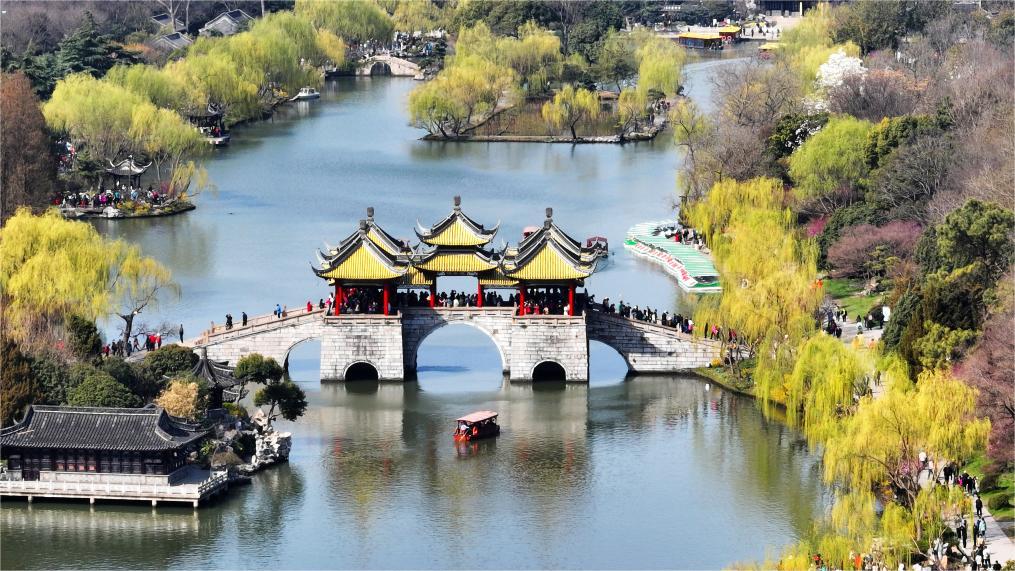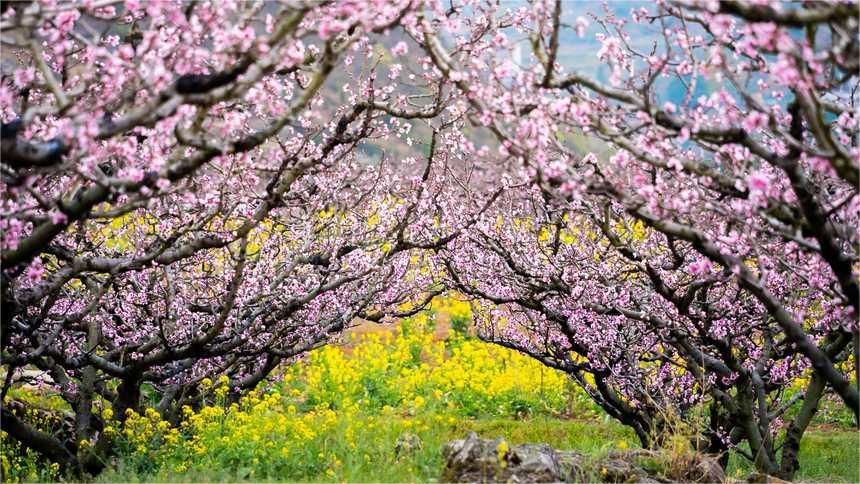Guangxi makes key achievements in protecting mangrove national nature reserve
The Shankou Mangrove National Nature Reserve in Hepu county, Beihai city, south China's Guangxi Zhuang Autonomous Region, is one of the first five national marine nature reserves in the country.
Established in 1990, the nature reserve has 919.6 hectares of mangrove forests and 10 exclusive mangrove species.

Photo shows a portion of the Shankou Mangrove National Nature Reserve in south China's Guangxi Zhuang Autonomous Region. (Xinhua/Zhang Ailin)
Thanks to years of protection efforts, the nature reserve, which is an important stopover for migratory birds along the East Asian-Australasian Flyway, has become a wetland of international significance.
"These days we spotted black-headed gulls, a species under first-class state protection in China, on the beach. This indicates that the coastal wetland environment of the Shankou mangrove forests is continuously improving," said Wei Jie, deputy head of the Yingluo management station of the nature reserve's management center.
Wei added that the sound and suitable wetland ecological environment and abundant food sources have attracted many birds, while the birds' foraging activities can effectively control pests in the mangrove forests.
The number of bird species recorded in the nature reserve reached 245 in 2023, an increase of 27 species compared to 2008. In the same year, there were 613 species of insects in that reserve, more than double the number in 2008.
In 2023, the nature reserve treated 273.53 hectares of tidal flat encroached by Sporobolus alterniflorus, commonly known as smooth cordgrass, an invasive species that is very prolific and leads to a decline in biodiversity. By 2025, 90 percent of the plant in the nature reserve will be removed.

Wei Jie, deputy head of the Yingluo management station of the Shankou Mangrove National Nature Reserve's management center, discusses the ecological functions of mangrove forests. (People's Daily/Deng Jiansheng)
Mangrove forests are recognized as one of the most effective ecosystems for storing carbon, said Liao Xin, deputy director of the Guangxi Key Laboratory of Mangrove Conservation and Utilization.
While supporting the nature reserve in planting and restoring mangroves in recent years, the Guangxi Mangrove Research Center of the Guangxi Academy of Sciences has also been actively conducting research on carbon sink methodology in the field of blue carbon to enable the mangrove ecosystem to contribute to China's "dual carbon" goals.
Compared to terrestrial forests, mangroves play an irreplaceable role in protecting coastlines, mitigating disasters, maintaining biodiversity, storing carbon, purifying seawater, and scientific research.
Photos
Related Stories
- China continues to keep waters clear
- China's ecological environment improves steadily in 2023: minister
- Township in China's Hunan improves ecology, develops green industries
- In Numbers: China's ecological environment improves steadily in 2023
- China builds ecological monitoring network to better protect lucid waters, lush mountains
- China reaps fruitful results in ecological efforts
Copyright © 2024 People's Daily Online. All Rights Reserved.









